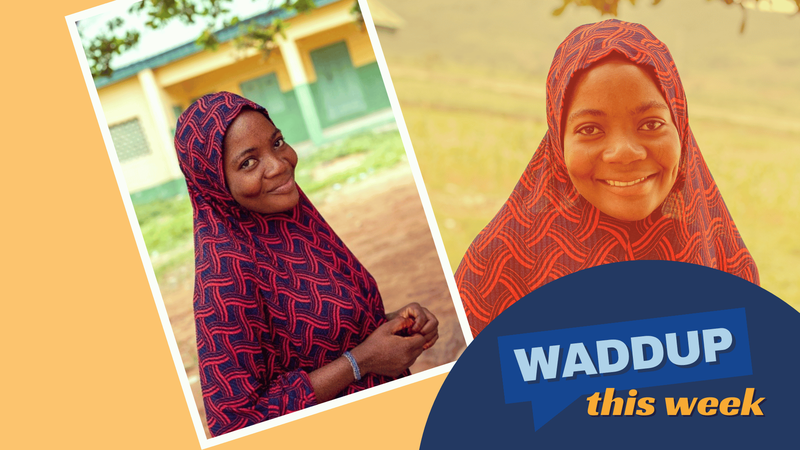Happiness is an inside job – or is it?
Peter Waddup, CEO - The Leprosy Mission Great Britain
What unites us as human beings is our shared goal to be happy. Regardless of our age, gender and background, we all want to be happy and live lives free of suffering. It is simply what makes us human. Yet while this is a simple truth, we so often hear that you can 'think yourself happy'. The self-help books tell us that 'happiness is a state of mind' or an 'inside job'. They lead us to believe that anyone can just decide to 'be happy'. While the intention is laudable and there is much we can do to transform our mindset and sense of gratitude, often it isn’t that simple. I think so many people in this world need a helping hand to achieve inner wellbeing. We all do at the toughest points in our lives if we're being honest.
I have seen - too many times - people affected by leprosy who have found themselves in hopeless situations. This is through no fault of their own. While leprosy is a cruel disease physically, many say the prejudice surrounding the disease is the hardest thing to bear.
I find it inconceivable that my family could throw me out of our home and their lives, unwanted and with no income to feed myself. But this is a dreadful consequence of leprosy. There is no other disease I can relate it to. I guess HIV in the 1980s is the closest I can get to surmising the level of fear and prejudice so inextricably bound to a physical condition.
Simply put, there is no way someone who is disabled and cast out from society can think themselves better. Survival through begging is often their only option. And as homeless people in the UK will testify, it is a miserable existence when people look through you as they walk by, desperate not to catch your gaze.
As well as caring for people affected by leprosy and giving them opportunities to earn and support themselves, we would love to offer counselling to every leprosy patient. We know that a holistic approach is needed to recover from leprosy. We know that if someone is able to share the burdens they are carrying, they are more likely to feel loved and valued. And if they feel loved and valued, then they are more likely to practice self-care. For leprosy patients, this can mean taking the time to care for and protect numb hands and feet. By doing so they are less likely to become injured and develop ulcers which can, in turn, cause disability.
Without our help, so many of the people we serve are simply unable to get out of the hole they find themselves in. We are not turning them into victims. This is regardless of any amount of mental strength and determination they may have. Even people who haven't had leprosy themselves but have a family member who has, need a helping hand out of the shadows.
Hussaina, who you can see pictured above, was bullied by her classmates because her father had leprosy. Hussaina grew up in a leprosy village in Nigeria. While she felt safe inside her own community, there were no work opportunities when she left school. So Hussaina sold food and snacks by the roadside in the neighbouring communities. But when her customers found out she was from a leprosy community, they refused to buy from her. When she was 19, Hussaina was engaged to be married to a man from outside her village. But after learning that her father had been treated for leprosy her fiancé rejected her. After the wedding was called off, Hussaina fell into a severe depression. She believed her life was over and that she was unlovable.
My colleagues were privileged to walk alongside Hussaina at the start of her transformational journey. Counselling provided a safe space to share her pain and fears. The team in Nigeria were able to share facts about leprosy in the areas surrounding her village. This helped people to understand that leprosy can be cured and need not be feared. Through this support, Hussaina's emotional wounds began to heal and her confidence was restored. She was offered the chance to start a beauty business igniting her entrepreneurial spirit. She is so thankful for the helping hand she received when she needed it the very most.
Perhaps happiness is something a person can choose if they have healthcare, their basic needs met and choices as to how to live their life. But to have those choices taken away can leave a person unseen, unloved and powerless. And as fellow human beings, this is our cue to step in.
